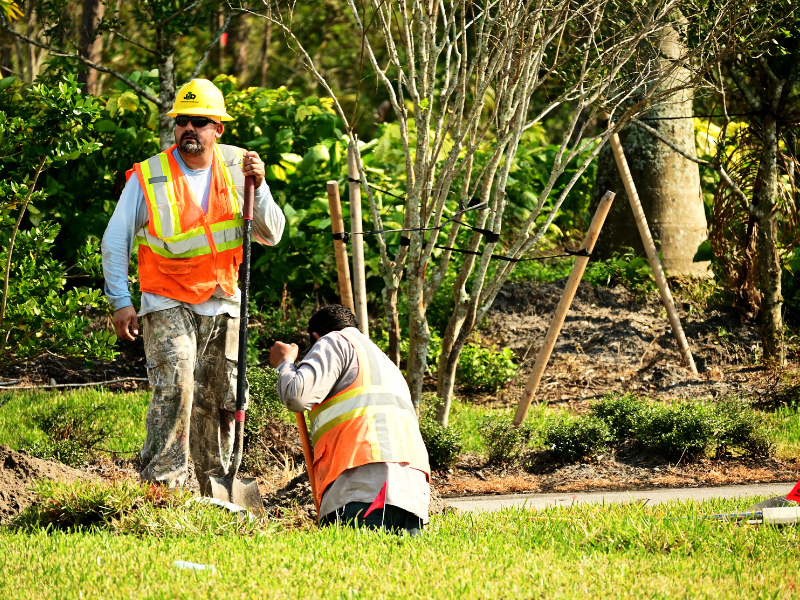The Growing Gig Economy and Workplace Risks
The gig economy has been on the rise in recent years, offering workers the flexibility to choose which jobs they want to take, when they want to work, and where they want to be located. While freelance or contract-based work can be a great option for many people, there are still workplace risks to keep in mind.
While there are many different types of jobs for freelancers and contracted workers, some common industries include high-risk jobs like construction and manufacturing. If you’re a gig worker, understanding workers’ comp solutions and how to remain covered is crucial.
Understanding Workers’ Comp for Freelancers and Contractors
Whether you’re a full-time employee or contracted worker, having workers’ comp coverage is imperative. Workers’ comp coverage helps protect workers financially in the event of an accident on the job. It can also help protect the company if someone gets injured onsite.
While mid-sized and large organizations typically have the ability to offer benefits packages to their employees, that may not be the case for small businesses or companies that hire independent contractors. Insurance companies typically require a large lump-sum premium each year. Small businesses, however, may not be able to afford that. Additionally, freelancers or contractors are hired on a project-by-project basis and won’t often need an entire year of coverage.
How PEOs Offer Workers’ Comp Solutions for Gig Workers
Professional employer organizations (PEOs) specialize in handling the administrative tasks for businesses—from payroll and workers’ compensation to safety programs and risk management. Let’s take a look at how they offer workers’ compensation solutions for gig workers.
1. Pay-As-You-Go Programs
Because freelancers typically work on a project-by-project basis, independent contractor protection can be challenging to navigate. Traditional insurance generally requires a lump-sum premium payment, and the type of coverage and duration of protection are usually standard across the board.
PEOs offer pay-as-you-go workers’ compensation programs that work seamlessly for freelancers and independent contractors. Pay-as-you-go solutions give workers the flexibility to have the amount of coverage they need, when they need it.
2. Safety Training Programs
Workplace injury can occur in any setting and in any industry. Creating a safe work environment by training each worker properly can make a massive difference on the volume of workers’ compensation claims.
PEOs often implement safety training programs for the workforce to help ensure everyone is up to date with current policies and protocol. This can be particularly helpful for gig workers who aren’t a permanent part of the team, and who may transition often between companies. Independent contractors will have their own employee dashboards where they can watch safety videos and educational content.
3. Automated Payroll
Automated payroll is especially beneficial for gig workers who may work varying hours or shifts each week. Workers will have access to an employee dashboard where they can track their time. Employers can utilize automated payroll systems to ensure each worker gets paid the correct amount and on time, without fail.
4. High-Risk Work Protection
In some cases, insurance companies don’t offer protection for high-risk workers. Great PEOs like PEOPayGo provide coverage no matter what your job is as an independent contractor or what industry you’re in.
5. Unique Coverage to Meet Your Needs
Each independent contractor and freelancer has their own specific needs when it comes to the type of coverage they need and the duration of time they need it. PEOs specialize in offering unique coverage that can meet the needs and timeline of each individual worker.
Additionally, PEO’s coverage options are typically reasonably priced. They’re able to group each of their clients in together in order to get the best pricing and packages possible from insurance companies.
Protecting Yourself with PEO-Backed Coverage
As a freelancer, independent contractor, or small business owner, you likely have a lot on your plate as it is. Workers’ compensation coverage should be easily accessible and hassle-free no matter what you do for work. When you work with a reputable PEO, gig workers are supported through pay-as-you-go workers’ comp programs, safety education, accurate and timely payroll, high-risk protection, and unique coverage to meet their specific needs.
If you’re a gig worker or small business owner, PEOPayGo is here to help. Our expert PEO solutions make it easy to meet your workers’ compensation requirements while staying focused on growing your business.
Contact us today to get the coverage and support you need!




